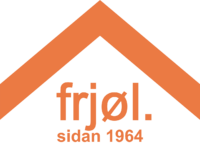Liberal Party (Charville)
Liberal Party Frjølsflokk | |
|---|---|
 | |
| Abbreviation | FF |
| Leader | Tomas Banke |
| Deputy Leader | Bisahalani Kaya |
| Founded | 5 December 1964 |
| Merger of | Liberals and Populars Free Democratic Party |
| Newspaper | Rikesavarpe |
| Youth wing | Liberal Youth |
| Women's wing | Liberal Women |
| LGBT wing | Liberal+Queer |
| Membership (2025) | |
| Ideology | Liberalism Social liberalism Progressivism |
| Political position | Centre to centre-left |
| Colors | Orange |
| Slogan | "Vi beveger Karvilik fræmyvir" "We move Charville forward" |
| Forsemling | 79 / 425
|
| Provincial premierships | 5 / 19
|
| Provincial legislatures | 602 / 1,938
|
| County councils | 4,881 / 15,540
|
The Liberal Party (Oanthanian: Frjølsflokk, Distani: Ńtsídadiiké yaa Bízhą́) is a federal political party in Charville which sits on the centre to center-left of the political spectrum. The party follows the principles of liberalism, encompassing a broad spectrum of supporters, with different factions in the party adhering to social liberalism, classical liberalism, libertarianism, and progressivism. As such, the party is often described as big tent.
The party was founded in 1964 as a merger of the two largest Charvillean liberal parties of that time, the Liberals and Populars, and the Free Democratic Party. The defection of several prominent Socialist Labour members to the Liberal Party soared its popularity, and successes in the 1966 presidential and parliamentary elections solidified its status as the major center-left party in Charville. Alongside the Conservative Party and The Centre, the Liberal Party is one of the dominating political parties of contemporary Charville, in government for 32 of the 61 years of the party's existence. It is the largest party in Charville by number of registered members.
The party supports a mixed capitalist economy, social equality, and protection of civil liberties; it advocates for healthcare form, abortion rights, legalisation of cannabis, looser immigration laws, and LGBT rights. The party initiated Charville's entry into the United Federation of Telrova (UFT) and International Task Force (ITF) in 2022, and its adoption of the Rova the following year. It maintains an internationalist stance on foreign policy.
The Liberal Party performs best electorally in urban areas, particularly in the regions of Distan, Malidae and South Oanthan, among ethnic and sexual minorities, and voters without a postgraduate degree. Since the 2000s, the party has gained support among more affluent voters while it has lost support among the working class. The party has been
The Liberal Party (Oanthanian: Frjølsflokk, Distani: Ńtsídadiiké yaa Bízhą́) is a federal political party in Charville which sits on the centre to center-left of the political spectrum. The party follows the principles of liberalism, encompassing a broad spectrum of supporters, with factions in the party including social liberals, classical liberals, centrists, and progressivists. As such, the party is often described as "big tent".
The party was founded in 1964 as a merger of the two largest Charvillean liberal parties of that time, the Liberals and Populars, and the Free Democratic Party. The defection of several prominent Socialist Labour members to the new Liberal Party soared its popularity, and successes in the 1965 parliamentary and 1966 presidential elections solidified the party's status as a major party. Since the late 1960s, the party has been part of the "Big Four" dominating parties in Charvillean politics. In its 61 years of existance, there have been three Liberal presidents (with a combined term length of 36 years) and [x] prime ministers, leading a total of [x] governments. The party is the largest in Charville by number of registered members.
The Liberals have garnered a reputation for social-liberal approaches under its governance (known as "New Republic" policies), most notably during the presidencies of Isak Frantzen, which saw healthcare reform and the decriminalisation of homosexuality in 1973, and Hjørdis Auestad, which saw the legalisation of same-sex marriage in 2010 and cannabis in 2012. The party supports a mixed capitalist economy and looser immigration laws; it initiated Charville's entry into the United Federation of Telrova (UFT) and International Task Force (ITF) in 2022, and its adoption of the Rova the following year/ The party maintains an internationalist stance on foreign policy.
The Liberal Party performs best electorally in urban areas, particularly in the regions of Distan, Malidae and South Oanthan, among ethnic and sexual minorities, and voters without a postgraduate degree. Since the 2000s, the party has gained support among more affluent voters while it has lost support among the working class.
| Election | Leader | Votes | Seats | Position | Government | |||
|---|---|---|---|---|---|---|---|---|
| No. | Share | ± pp | No. | ± | ||||
| 1965 | Sigbjørn Ketelsen | 261,269 | 40.8% | 106 / 350
|
New | Liberal-Conservative | ||
| 1966 | 261,269 | 40.8% | 159 / 350
|
Liberal-Centre | ||||
| 1971 | 261,269 | 40.8% | 202 / 400
|
Liberal | ||||
| 1976 | Preben Kvale | 261,269 | 40.8% | 163 / 400
|
Liberal-Red (1976-1979) | |||
| Centre-Conservative-United Peasants (1979) | ||||||||
| 1979 | David Hougen | 261,269 | 40.8% | 84 / 400
|
Centre-Conservative | |||
| 1984 | 261,269 | 40.8% | 85 / 400
|
Centre-Conservative-Reconquest (1984-1988) | ||||
| Centre-Conservative minority (1988-1989) | ||||||||
| 1989 | Sigbjørn Ketelsen | 261,269 | 40.8% | 174 / 400
|
Liberal-Social Democrats | |||
| 1994 | 261,269 | 40.8% | 141 / 400
|
Liberal-Social Democrats minority | ||||
| 1997 | 261,269 | 40.8% | 56 / 400
|
Conservative | ||||
| 1997 | wjijka auja | 261,269 | 40.8% | 100 / 400
|
Conservative | |||
- FDBCB4